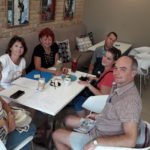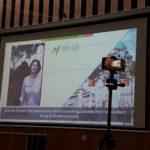Our association received an invitation from the German Ministry of Labour and Social Affairs to a very professional online conference on effective political participation of people with disabilities in Europe. It’s an exciting subject, isn’t it?
The event in German and English was accessible in all respects, with a light language and sign language also in both English and German.
In fact the conference can be summed up with the following motto: democracy needs insulsion!
While European fundamental rights declare the principle and right of equal access, this is not enough. In 2019, 290,000 more voters suddenly appeared among europeans who could vote, due to the fact that several member states have finally legally recognised the electoral rights of people with intellectual disabilities. However, the right to vote and to be chosen must include accessibility in all respects. Including accessibility, information supply, administrative help, and assistance.
It is important to extend this to all political segments, i.e. people with disabilities can participate in decisions at all levels.
It is equally important to strengthen self-assessment in people with disabilities so that it is clear to them that they want to participate in decisions.
Disability policy should be a priority for the EU so that all EU citizens can assert their rights.
In the new EU disability strategy the following guidelines have been set out for development:
– economic and social inclusion
– developing self-awareness in people with disabilities, increasing their activity
– raising the level of employment among people with disabilities is key. This leads most to the achievement of independent life, to the improvement of quality of life
– similarly the inclusive qualification is essential
If all this is fulfilled, we can talk about democracy!


